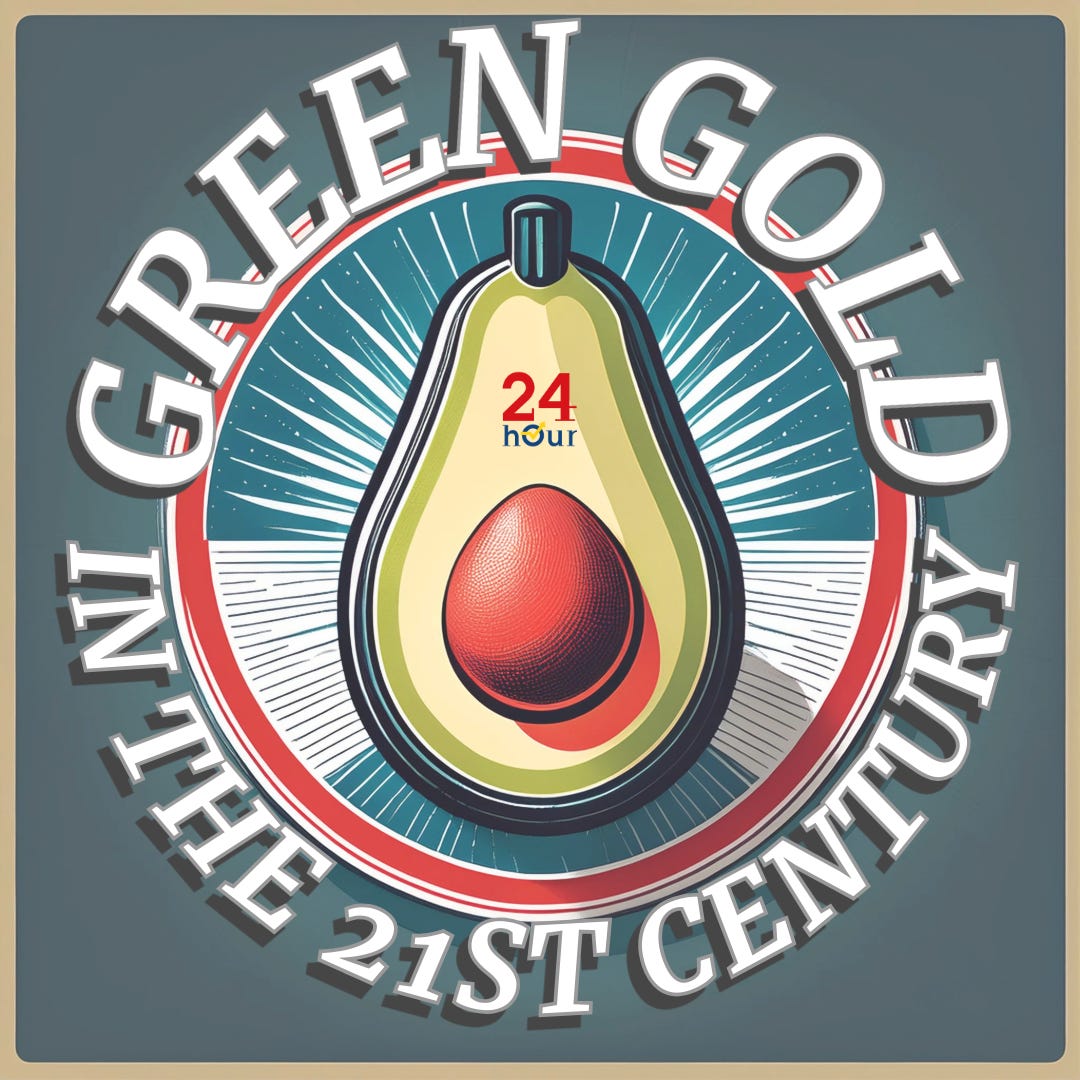Avocado, the Green Gold of the 21st Century
Avocados have earned their "green gold" nickname through market value and profitability.
What comes to mind when you think of avocado? Is it the guacamole at your favorite Mexican restaurant, the trendy toast that changed your brunches, or the nourishing eye mask in your skincare routine? The versatility of avocados is remarkable.
For over 7,000 years, the Aztecs, Maya, and Olmecs cultivated avocados in Mesoamerica (present-day Mexico and C…
Keep reading with a 7-day free trial
Subscribe to 24Hour Journal to keep reading this post and get 7 days of free access to the full post archives.




